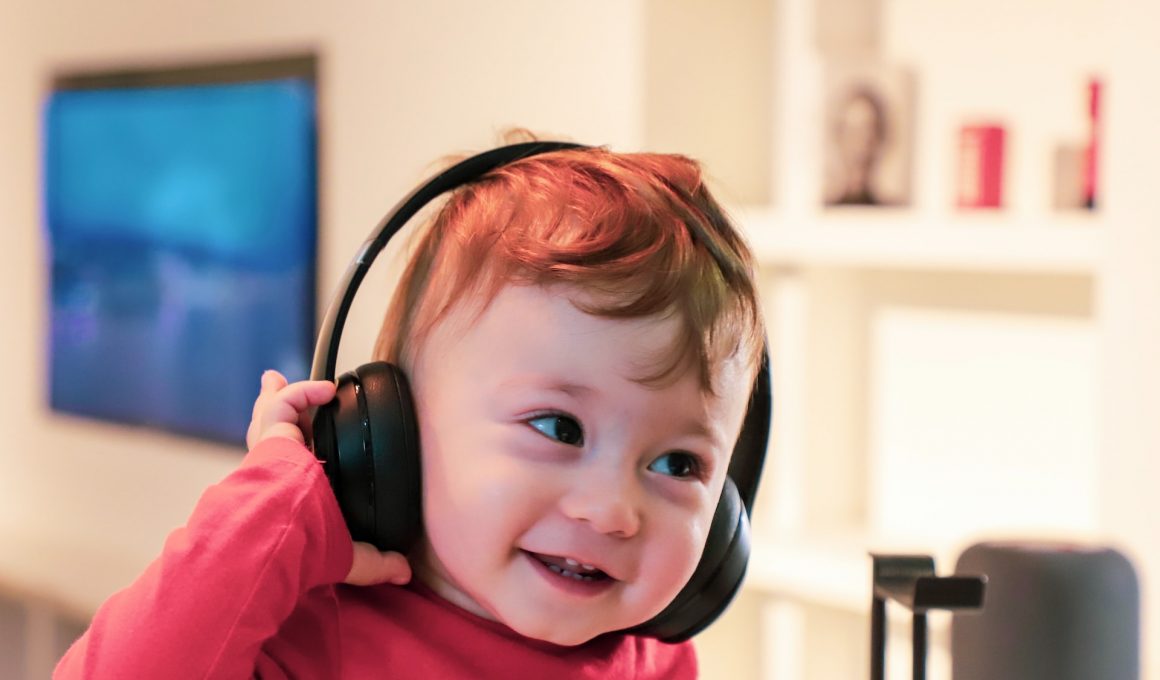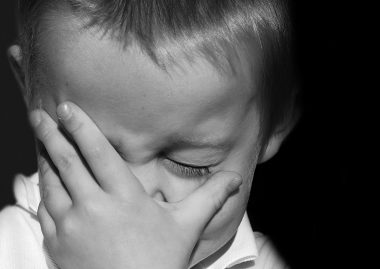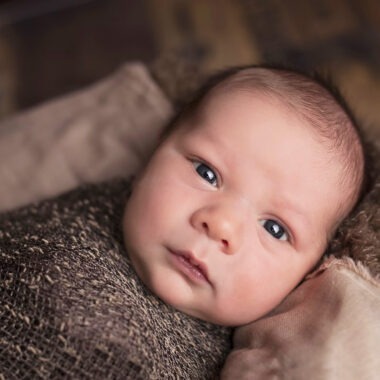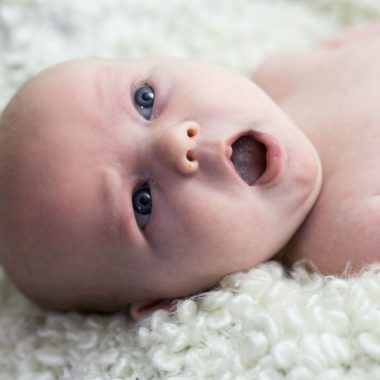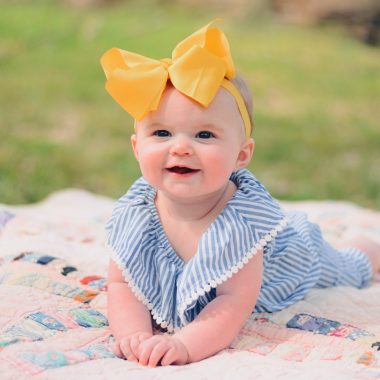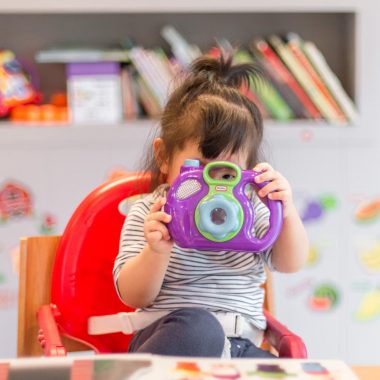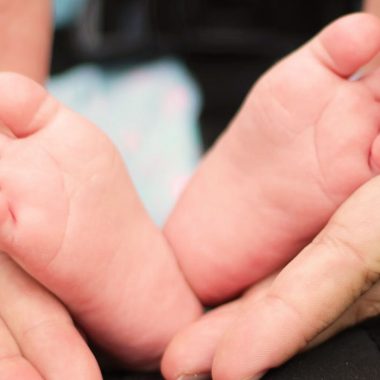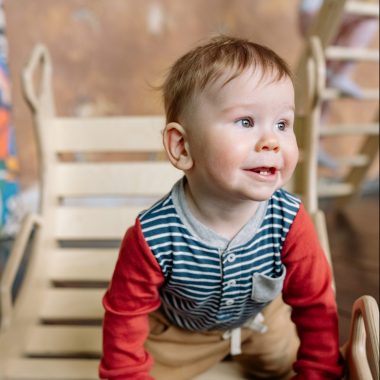Babies use their ears to take in information about the world around them.
Hearing also enables them to
- learn languages and
- stimulates brain development.
That’s why your baby’s hearing development is so important.
A baby begins to hear sounds while in the womb.
- The mother’s heartbeat,
- The sounds of the mother’s digestive system,
- The mother’s voice
- The voices of other family members
These sounds are all part of the baby’s world before birth.
After the baby is born, the sounds of the outside world become loud and clear. Among all the sounds, the voices of the mother and the father are their favorites. The baby recognizes the source of love, warmth, touch, and essential nurturing for their development.
Generally, shortly after birth, every baby receives a hearing screening test. This test is vital for identifying and addressing hearing problems as early as possible.
This article provides insights into the hearing milestones of a baby, along with answers to frequently asked questions. Keep reading to learn more.
At what age do babies start hearing?
At around 18 weeks of pregnancy, the structures inside a baby’s ear are well-established enough for the baby to start hearing some limited noises.
These noises are the heartbeat of the mother, the gurgle of the mother’s stomach, and the whoosh of air in and out of the mother’s lungs.
Over the next few weeks, a baby will hear more of the outside world.
At 27 to 29 weeks (6 to 7 months), they can hear some sounds outside their mother’s body. So they react in response to voices and noises that filter into the womb, like the father’s voice.
When can my baby hear me?
When you’re pregnant, the clearest sound your baby will be able to hear is yours.
Most sound is transmitted through the air and then through your uterus. But when you speak, the sound of your voice reverberates through your bones and the rest of your body, amplifying it.
According to studies, a fetus’s heartbeat increases when they hear their mother’s voice. This is why experts recommend pregnant mothers read out loud, carry on conversations and sing songs to their unborn babies.
Babies also learn to recognize other people’s voices and sounds they hear often in utero. So when a father reads or sings to the baby, they also learn the father’s voice.
How does hearing develop?
According to Healthline experts, the early formation of what will become your baby’s eyes and ears begins in the second month of pregnancy. That’s when the cells inside the developing embryo begin arranging themselves into what will become the face, brain, nose, eyes, and ears.
By about week 9 of pregnancy, small indentations on the side of your baby’s neck appear, as the ears continue to form on both the inside and the outside. Although they’re not in their final location yet, these indentations will begin moving upward before developing into what you’ll recognize as your baby’s ears.
Throughout the first and second trimester of your pregnancy, your baby’s ears continue to develop.
- The inner ear connects with neurons in the brain responsible for processing sounds.
- The miniscule bones of the middle ear (which sense the vibration of sound waves) form.
Around 18 weeks of pregnancy, your baby hears their very first sounds.
By 24 weeks, your baby’s ears are rapidly developing. Their sensitivity to sound will improve even more as the weeks pass.
The limited sounds your baby hears around this point in your pregnancy are noises you may not even notice. They are the sounds of your body. These include your beating heart, air moving in and out of your lungs, your growling stomach, and even the sound of blood moving through the umbilical cord.
Around weeks 27 to 30, babies can turn their heads or otherwise respond to sounds they hear outside the womb.
Fetal hearing development
|
Week of pregnancy |
Development |
|
4–5 |
Cells in embryo start to arrange themselves into baby’s face, brain, nose, ears, and eyes. |
|
9 |
Indentations appear where baby’s ears will grow. |
|
18 |
Baby starts to hear sound. |
|
24 |
Baby is more sensitive to sound. |
|
25–26 |
Baby responds to noise/voices in the womb. |
What are a baby’s hearing milestones?
The following milestones are behaviors that are typically expected in hearing infants and toddlers with normal development.
Birth to 5 Months
- Reacts to loud sounds.
- Turns head towards a sound source.
- Watches your face when you speak.
- Vocalizes pleasure and displeasure sounds (laughs, giggles, coos, cries, fusses).
- Makes noise when talked to.
- Begins to incorporate changes in pitch in cooing (intonation).
- Spontaneously makes raspberry sounds.
6 to 11 Months
- Understands “no-no”.
- Babbles (says “ba-ba-ba” or “ma-ma-ma”).
- Tries to communicate by actions or gestures.
- Tries to repeat your sounds.
- Attempts to imitate familiar sounds.
12 to 17 Months
- Begins to produce a variety of non-repetitive syllables such as “ba-ma” or “ba-go”.
- Pays attention to a book or toy for about two minutes.
- Follows simple directions accompanied by gestures.
- Answers simple questions non verbally.
- Points to objects, pictures, and family members.
- Says two to three words to label a person or object (pronunciation may not be clear).
- Tries to imitate simple words.
18 to 23 Months
- Enjoys being read to.
- Follows simple commands without gestures.
- Points to simple body parts such as “nose”.
- Understands simple verbs such as “eat”, “sleep”.
- Correctly pronounces most vowels and n, m, p, h, especially in the beginning of syllables and short words. Also begins to use other speech sounds.
- Says eight to ten words (pronunciation may still be unclear).
- Asks for common foods by name.
- Makes animal sounds such as “moo”.
- Starts to combine words such as “more milk”.
- Begins to use pronouns such as “mine”.
Two to Three Years
- Knows about 50 words at 24 months.
- Knows some spatial concepts such as “in”, “on”.
- Knows pronouns, such as “you”, “me”, “her”.
- Knows descriptive words such as “big”, “happy”.
- Says around 40 words at 24 months.
- Speech is becoming more accurate, but may still leave off ending sounds. Strangers may not be able to understand much of what is said.
- Answers simple questions.
- Begins to use more pronouns such as “you, “I”.
- Speaks in two to three word phrases.
- Uses question inflection to ask for something (e.g., “My ball?”).
- Begins to use plurals, such as “shoes” or “socks,” and regular past tense verbs, such as “jumped”.
How do I know if my newborn can hear?
If your newborn does not respond to loud sounds with a startled reaction or never seems to react to your voice in the first months, consult your pediatrician.
In most cases, newborns get a hearing screening test before going home from the hospital.
If a test has not been done or your baby was born at home or at a birthing center, it’s important to check their hearing within the first 3 weeks of life.
A baby who doesn’t pass a hearing screening test doesn’t necessarily have hearing issues. A hearing test should be repeated by 3 months of age.
If the test confirms a hearing problem, doctors recommend seeking treatment before 6 months.
Even newborns who pass their initial hearing screening should be observed for signs that they might not be hearing well.
Children with hearing loss won’t respond to sounds or may experience language development delays.
The following are some key behaviors displayed by babies without hearing loss:
- Most newborns get startled when experiencing sudden loud noises.
- By 3 months, a baby recognizes their parent’s voice.
- By 6 months, babies turn their eyes or heads toward a new sound and repeat sounds.
- By 12 months, babies make babbling sounds, respond to their name, imitate words, and may say a few words, such as “mama” or “bye-bye.”
Children may be at higher risk for hearing loss if they:
- were born early.
- stayed in the neonatal intensive care unit (NICU).
- used medicines that contribute to hearing loss.
- had complications at birth.
- get a lot of ear infections.
- had infections that can damage hearing, such as meningitis.
How sensitive is my baby’s hearing?
Your baby’s hearing is more sensitive than yours. A good rule of thumb is if you can talk easily over the sound, it shouldn’t harm your baby’s hearing.
Your baby is also more sensitive to pitch. High-pitched noises may bother them more than they would bother you.
How your baby reacts to sound may depend on their temperament as well. Some babies are more sensitive to things around them, so they may react more to loud noises.
However, the everyday sounds of your home shouldn’t bother your baby. In fact, your baby should be able to sleep right through them.
On the other hand, new loud sounds may startle them, making them cry, especially in the first three months.
What is too loud for a 2 month baby?
Children and babies might be at risk due to excessive noise. Their ear canals are not fully developed, and a baby’s auditory faculty is more sensitive than an adult’s. That’s why it’s vital to prevent noise exposure and create a safe environment for your baby.
As a rule, babies should not be exposed to noise levels over 60 decibels. The noise level recommended for hospital nurseries is actually lower, standing at 50 dB. For reference, a quiet conversation is between 50 and 55 dB, and an alarm clock is 80 dB.
Babies might be particularly vulnerable to loud noises when they are asleep. 50-60 decibels is the safe decibel level recommended for babies’ sleep.
Exposure to higher decibel levels is considered unsafe for babies during sleep and can affect their sleep quality, sleep patterns, and development.
Should I monitor my baby’s hearing as they grow?
Yes. Newborn hearing tests don’t pick up all types of hearing loss; children can develop hearing loss later.
Sometimes, it doesn’t become clear that a baby has hearing problems until they begin learning to communicate in their first year or even years later when they start school.
Bear in mind that your baby may not seem to notice noises around them even while having perfect hearing capacities. If they sleep through the doorbell ringing and the dog barking, they probably just need to sleep.
If you want to test your baby’s hearing, the best time to do so is when they are awake.
Below are a few quick checks you can do to test your baby’s hearing:
- Between 1- 3 months, watch to see if your baby turns towards familiar sounds. This could be the noise of a vacuum cleaner.
- Hearing and talking are linked. By 4 months of age, your baby should make cooing sounds and other noises. Chat and sing to your baby often to encourage them to gurgle back at you. Leave pauses to give them time to respond to you.
- Between 4- 6 months, your baby should have head control. Call your baby’s name to see if they turn towards you. They’ll watch your face when you talk to them. They may also turn their eyes or head to look for an interesting sound.
- Between 6-10 months, your baby should respond to their name and familiar sounds. They may also respond to quiet noises if they are not busy with other things.
- Between 10-15 months, your baby should be able to point to a familiar object in a book when you ask them about it. They may even notice quieter sounds coming from another room and may respond to words such as “bye-bye” without being prompted by physical movements such as waving.
If your baby doesn’t respond to any of these tests, or if you’re unsure and want a second opinion, it is never a bad idea to talk to your doctor.
What can I do to help my baby’s listening skills?
Your baby listens to noises to help them learn about the world around them and to communicate.
Here are some tips to help nurture your baby’s listening skills.
- Talk and read to your baby whenever you can. For example, when you dress your baby, name each item of clothing and its color.
- Tune in to what your baby hears and comment on it. Whether it’s the rumble of a passing lorry or the gentle purring of a cat, noticing what your baby is listening to will be rewarding for you both.
- Play music and songs, especially if there are actions you and your baby can do along with the music and words. Point out the different sounds instruments play, such as the tinkling noise of a piano or the banging of drums.
References: babycentre.co.uk, childrens.health.qld.gov.au, kidshealth.org, healthline.com, aussiedeafkids.org.au, whattoexpect.com


